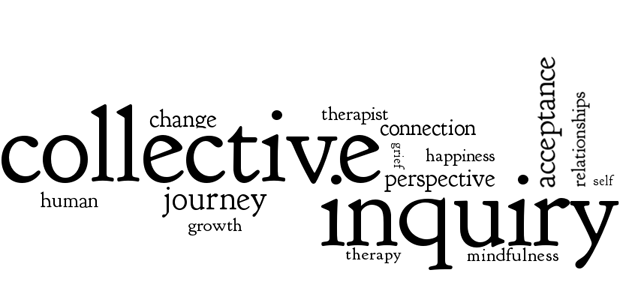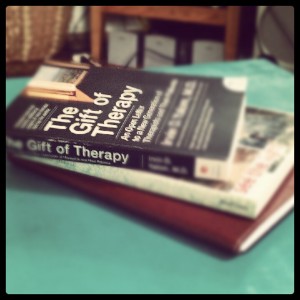

“Not all those who wander are lost.” –J. R. R. Tolkien,
The Fellowship of the Ring
As a beginning student in a clinical program, I often felt terrified that my clients would see that I was not perfect. At the time, I had just started a new chapter of my life: (a) just moved to a new state; (b) struggling to keep up with coursework, clinical hours, assistantship duties, and thesis research; (c) recently engaged and in the fifth year of a long-distance relationship that experienced more than its fair share of ups and downs; (d) just adopted my first pet and felt the weight of being responsible for a life other than my own for the first time; and (e) in the process of making brand new friends because, let’s face it, I knew no one in this town.
All in all, I did not have my stuff together.
I felt mortified that my clients would see this in me. Were they not were coming to me for wisdom, insight, and advice? This fact, alone, dictated that I know what I’m doing with my own life… didn’t it?
One by one, as I helped clients work through their own pain, I began to work through my own. While a client explored her own low feelings of self-worth, I began to challenge the thoughts that prevented my own self-confidence. As I listened to a client discuss the shame of having an affair, I worked through my own shame and self-deprecation. And when I was lucky enough to go to that deep dark place that a client had never let anyone into before, I was finally able to share my own fears and insecurities with those closest to me.
This experience taught me that therapists and clients are on a journey together. Even though my education and training have prepared me to share my knowledge of relationships with clients, I still have moments when I make the wrong decision. I remember the first time a couple commented to my husband that we must not have any problems. He quickly responded, “No, we just know what to call it when we do something wrong.”

These experiences, and the steps I use to come back from them, add to my toolbox as a therapist. The tools that have become so valuable in my own life have also proven to be helpful with clients. Now that I’m married, with a mortgage, and attempting to balance work, school, and family, I recognize that my personal struggles allow me to access a place of understanding and empathy towards my clients.
In The Gift of Therapy, Irvin D. Yalom writes “Everyone—and that includes therapists as well as patients—is destined to experience not only the exhilaration of life, but also its inevitable darkness…” In other words, a therapist with no problems is a mythic creature, and one that I had to learn to stop trying to be. Without those experiences, I wouldn’t have the understanding of relationships that I do now.
Share your thoughts
No Thoughts About A Therapist’s Myth